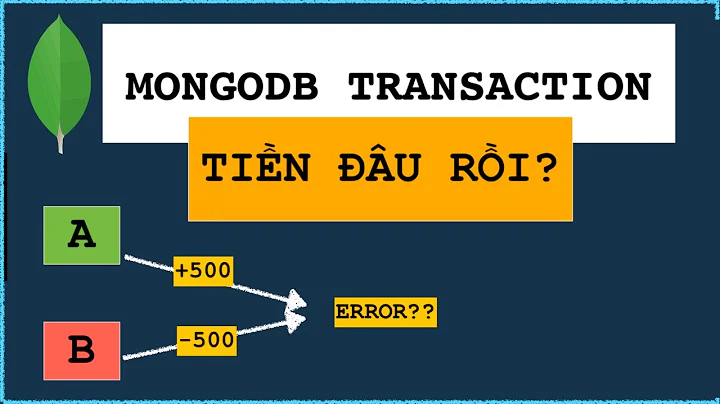MongoDb via jndi
Solution 1
If you mean like regular RDBMS with JDBC access, then the answer is no.
Solution 2
Yes it is possible, why relying in someone elses code when you can create your own JNDI factory? just create a class that implements javax.naming.spi.ObjectFactory and a bean that pulls mongo from the JNDI context, I configured this for spring data-mongo MongoTemplate object.
public class CustomMongoJNDIFactory implements ObjectFactory {
public Object getObjectInstance(Object obj, Name name, Context nameCtx,
Hashtable<?, ?> environment) throws Exception {
validateProperty(obj, "Invalid JNDI object reference");
MongoTemplate mongoTemplate = null;
String db = null;
String host = null;
String username = null;
String password = null;
int port = 27017;
Reference ref = (Reference) obj;
Enumeration<RefAddr> props = ref.getAll();
while (props.hasMoreElements()) {
RefAddr addr = (RefAddr) props.nextElement();
String propName = addr.getType();
String propValue = (String) addr.getContent();
if (propName.equals("db")) {
db = propValue;
} else if (propName.equals("host")) {
host = propValue;
} else if (propName.equals("username")) {
username = propValue;
} else if (propName.equals("password")) {
password = propValue;
} else if (name.equals("port")) {
try {
port = Integer.parseInt(propValue);
} catch (NumberFormatException e) {
throw new NamingException("Invalid port value " + propValue);
}
}
}
// validate properties
validateProperty(db, "Invalid or empty mongo database name");
validateProperty(host, "Invalid or empty mongo host");
validateProperty(username, "Invalid or empty mongo username");
validateProperty(password, "Invalid or empty mongo password");
//create mongo template
mongoTemplate = new MongoTemplate(new Mongo(host, port), db,
new UserCredentials(username, password));
return mongoTemplate;
}
/**
* Validate internal String properties
*
* @param property
* @param errorMessage
* @throws NamingException
*/
private void validateProperty(String property, String errorMessage)
throws NamingException {
if (property == null || property.trim().equals("")) {
throw new NamingException(errorMessage);
}
}
/**
* Validate internal Object properties
*
* @param property
* @param errorMessage
* @throws NamingException
*/
private void validateProperty(Object property, String errorMessage)
throws NamingException {
if (property == null) {
throw new NamingException(errorMessage);
}
}
}
Spring bean:
@Configuration
@Qualifier("mongoTemplate")
public class CustomMongoTemplate {
public @Bean MongoTemplate mongoTemplate() throws Exception {
Context initCtx = new InitialContext();
Context envCtx = (Context) initCtx.lookup("java:comp/env");
return (MongoTemplate) envCtx.lookup("bean/MyMongoBean");
}
}
Context.xml:
<Resource name="bean/MyMongoBean" auth="Container"
type="org.springframework.data.mongodb.core.MongoTemplate"
factory="com.package.CustomMongoJNDIFactory"
host="" db="" username="" password=""/>
Web.xml
<resource-env-ref>
<description>Mongo JNDI configuration</description>
<resource-env-ref-name>comp/env/bean/MyMongoBean</resource-env-ref-name>
<resource-env-ref-type>org.springframework.data.mongodb.core.MongoTemplate</resource-env-ref-type>
</resource-env-ref>
Solution 3
Reusing Juan Melo's custom implementation of ObjectFactory interface (CustomMongoJNDIFactory), it can be also configured using jndi-lookup tag of Spring's jee namespace and corresponding Tomcat config in context.xml file, like this:
spring-mongodb-persistence-context.xml:
<beans xmlns="http://www.springframework.org/schema/beans"
xmlns:xsi="http://www.w3.org/2001/XMLSchema-instance"
xmlns:mongo="http://www.springframework.org/schema/data/mongo"
xmlns:jee="http://www.springframework.org/schema/jee"
xsi:schemaLocation="http://www.springframework.org/schema/beans http://www.springframework.org/schema/beans/spring-beans-3.2.xsd
http://www.springframework.org/schema/data/mongo http://www.springframework.org/schema/data/mongo/spring-mongo-1.2.xsd
http://www.springframework.org/schema/jee http://www.springframework.org/schema/jee/spring-jee-3.1.xsd">
<jee:jndi-lookup id="mongoTemplate" jndi-name="java:/comp/env/jndi/MongoDB" expected-type="org.springframework.data.mongodb.core.MongoTemplate" />
<mongo:repositories base-package="com.package.repository.mongodb" />
</beans>
context.xml:
<Resource name="jndi/MongoDB"
auth="Container"
type="org.springframework.data.mongodb.core.MongoTemplate"
factory="com.package.mongo.CustomMongoJNDIFactory"
username="test"
password="test"
host="localhost"
port="27017"
db="test" />
Solution 4
To do this, you'll need a JDBC driver impl for MongoDB. I have only found one, and it's referred as "experimental" from the MongoDB page: GitHub JDBC Driver for MongoDB .
to workaroud this limitation, you could setup some Spring beans and create a MongoDB implementation for your application DAO (this way, you won't need to change the DAO interface and it's client components).
This articles may help:
Related videos on Youtube
breedish
Updated on May 07, 2022Comments
-
breedish about 2 years
Do you know if it is possible to setup mongodb instance in spring like any other db via datasource from jndi?
Thx






![[Windows] Install Mongodb](https://i.ytimg.com/vi/5Odp8lcAvyA/hq720.jpg?sqp=-oaymwEcCNAFEJQDSFXyq4qpAw4IARUAAIhCGAFwAcABBg==&rs=AOn4CLAu04TVy2XTT8G4oof8Gz9PT-11mQ)


